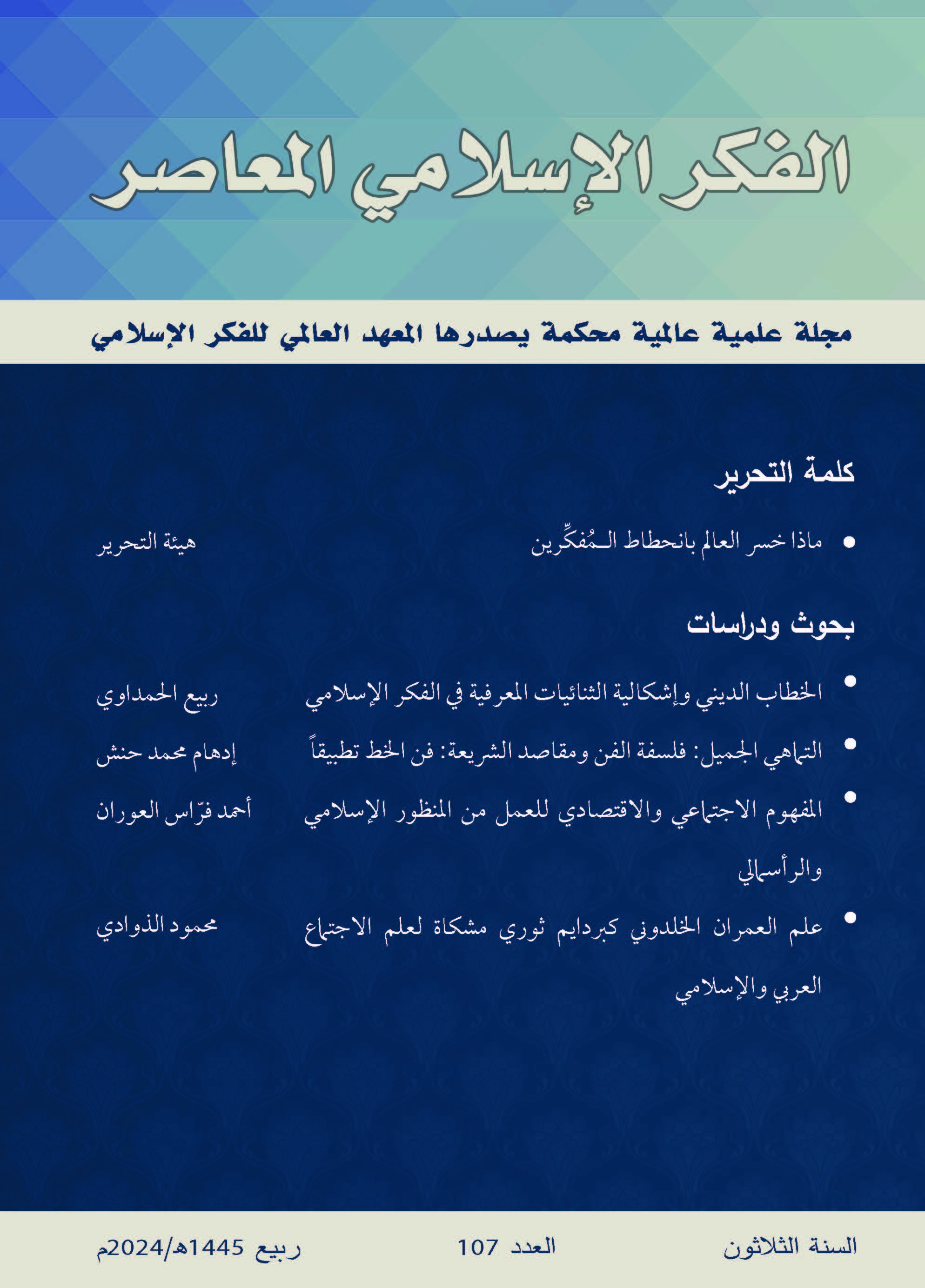Abstract
The article explores the social and economic concept of labor from two perspectives: the capitalist perspective dominant in economic studies, and the Islamic perspective in light of the Qur’anic higher objectives for civilization building (ʿumrān). This comparative approach seeks to emphasize certain issues that may escape researchers: mainly, the social and cultural basis of the concept of labor and its repercussions; and the importance of defining the technical terms of cultural concepts in order to highlight their natural variations and their effects on social issues, and then how to address them across different cultures. The article discusses the Islamic definition of labor and examines Islamic views toward certain economic issues in light of this definition. It contends that how labor is defined has a direct impact on understanding and managing economic issues: issues such as determining the size of the labor force, calculating unemployment ratios, correlating unemployment with poverty, correlating the restraint of poverty with economic growth, as well as the involvement of both men and women in the labor market and its relevance to human rights, scientific advancement, and the realization of human development.

This work is licensed under a Creative Commons Attribution-NonCommercial-NoDerivatives 4.0 International License.
Copyright (c) 2024 المعهد العالمي للفكر الإسلامي





